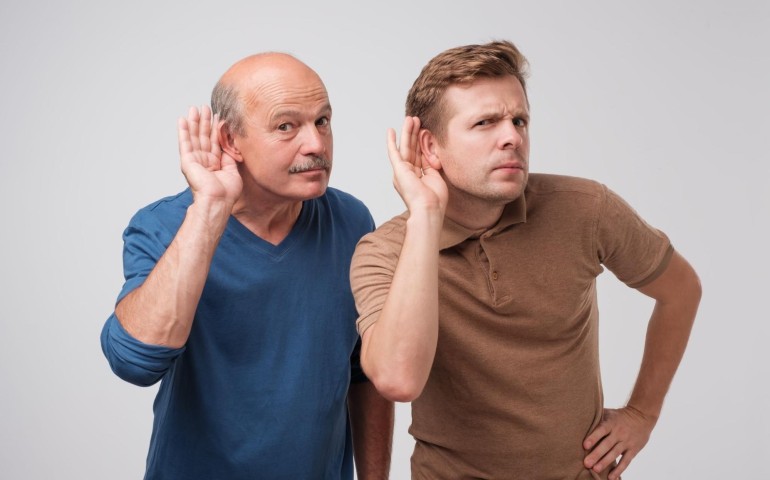Early Signs of Hearing Loss to Look Out For
Your sense of hearing is important for how you interact with the world. It helps you enjoy conversations and stay aware of everyday sounds. But because it usually sneaks up on you, the early signs of hearing loss are remarkably easy to overlook.
Many people disregard the early signs of hearing loss until it starts affecting their daily lives. That’s why it is essential to learn and recognize the warning signs of hearing loss and how early detection can help manage it.
The Three Types of Hearing Loss
Hearing loss happens when there’s a disruption in how the ear and brain process sound. It makes it harder to understand people when they talk. This affects your relationships and lowers your quality of life. It can affect one or both ears and generally falls into three categories, and can range from mild to severe:
- Sensorineural hearing loss: The most common type, affecting the inner ear or auditory nerve, which is often age or noise-related.
- Conductive hearing loss: Caused by blockages or damage, like wax buildup or infections, in the outer or middle ear.
- Mixed hearing loss: A combination of both sensorineural and conductive issues.
Common Early Signs of Hearing Loss
1. Difficulty Hearing in Noisy Environments:
Struggling to follow conversations in restaurants, parties, or other loud places is a common early sign of hearing loss.
2. Frequent Ringing in the Ears:
If you hear a constant ringing, buzzing, or hissing sound in your ears, it may be tinnitus. People often connect this condition to hearing loss, especially when experienced in quiet places.
3. Asking People to Repeat Themselves:
If you often ask others to repeat themselves in conversation, it might be a sign of hearing issues.
4. Turning Up the Volume on Devices:
You might have early hearing loss if the TV, radio, or phone sounds too quiet, even at normal volume. Pay attention to whether others comment that the volume is too loud.
5. Feeling Fatigued After Social Interactions:
Listening should be effortless. When your brain works hard to fill in missing sounds, it can make you feel tired or mentally drained after talking or social events.
6. Trouble Understanding High-Pitched Sounds:
Many people lose sensitivity to higher-frequency sounds first. One of the first signs of hearing loss could be if you're having trouble hearing birds, children’s voices, or certain consonants.
7. Avoidance of Social Situations:
Some people start pulling away from conversations or avoiding loud places. This happens because they feel frustrated when they cannot understand others clearly.
Other Warning Signs of Hearing Loss to Watch For
These small things can go unnoticed, but are significant indicators that your hearing is changing. Here are a few more subtle changes that may signal it’s time for a hearing test:
- Missing everyday sounds like the doorbell, microwave beep, or turn signal
- Having trouble with phone calls, even when the signal is strong and the volume is up
- Difficulty identifying where sounds are coming from, such as pinpointing a voice in a crowded room
- Family or friends noticing changes before you do, such as commenting that you’re speaking louder than usual
Why Early Detection Is Crucial
Ignoring the early signs of hearing loss doesn’t make them go away. It allows the problem to get worse. Researchers have linked untreated hearing loss to cognitive decline, depression, and social isolation. It can also strain your relationships and reduce your ability to stay engaged in life.
The good news is that early intervention typically leads to better outcomes. Treatment options for hearing loss, like hearing aids, work best when started early. Getting regular hearing tests helps detect changes before they impact your life.
What to Do if You Notice Signs of Hearing Loss
If you think you have signs of hearing loss, the best thing to do is schedule a hearing test. A hearing specialist can provide comprehensive tests, personalized consultations, and recommendations for the most suitable solutions for your needs.
Seeking professional help ensures you understand your hearing and can confidently decide on the next steps for better hearing.
Don’t Wait for Your Hearing Loss to Get Worse
The warning signs of hearing loss often begin as minor changes. If your hearing loss goes undiagnosed, it can lead to bigger problems and worse hearing issues.
Acting early can protect your independence and quality of life. Beltone Skoric is here to guide you through the process with expert care and a commitment to your hearing health. From hearing evaluations to hearing aid fittings, our team of hearing care experts offers comprehensive, personalized solutions across Michigan.





